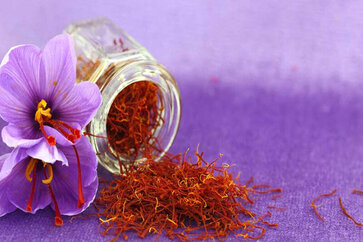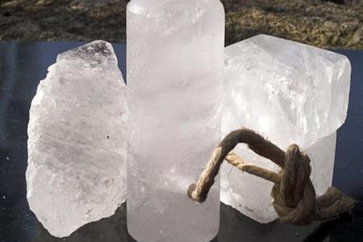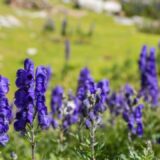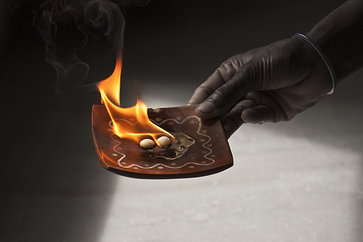Herbs & Spices That You Should Try For Hair Growth At Home
In the search for lush and vibrant hair, the answer might just be found in the heart of your kitchen. The rejuvenating power of herbs and spices extends beyond their culinary uses, offering a natural and potent solution for promoting hair growth. 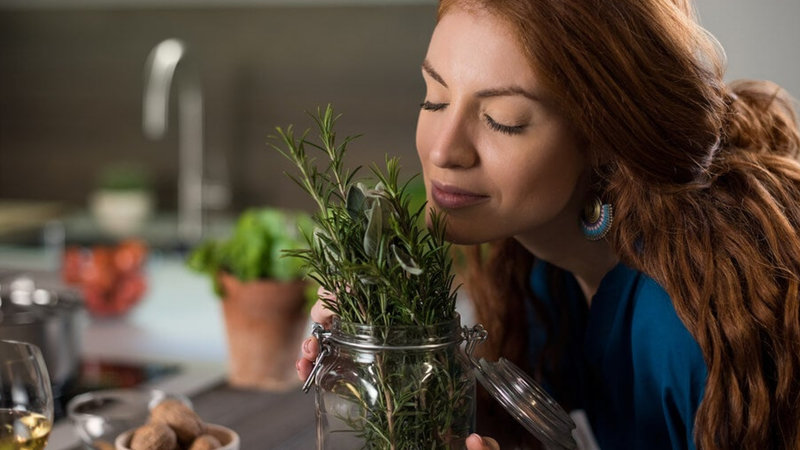
Beyond the shelves of expensive hair products, these remarkable ingredients possess the potential to invigorate your hair care routine and foster a healthier, more vibrant mane. In this article, we’ll delve into the realm of herbs and spices, uncovering their secrets for nurturing hair growth from the comfort of your own home.
Herbs and Spices That Promote Hair Growth
While it is true that there is no miracle product to grow hair overnight, there are a wide variety of alternatives that can help stimulate healthy growth in a short time.
Among these options, we find some medicinal plants that, in addition, revitalize the mane when it has suffered aggression. Do you dare to try them? Discover them!
1. Rosemary
Way to Use: Create a rosemary-infused oil by steeping dried rosemary leaves in carrier oil (like coconut or jojoba) for a few weeks. Massage the oil onto your scalp and leave it on for a few hours before washing it out.
Benefits: Rosemary stimulates hair follicles, increases blood circulation to the scalp, and reduces hair thinning. Its antioxidants promote overall hair health.
2. Aloe Vera
Way to Use: Extract fresh aloe vera gel from the leaves and apply it directly to the scalp. Leave it on for about 30 minutes before rinsing.
Benefits: Aloe vera’s enzymes help remove dead skin cells from the scalp, maintain pH balance, and promote healthy hair growth. It also adds shine and reduces dandruff.
3. Ginseng
Way to Use: Brew ginseng tea and let it cool. Use it as a final hair rinse after shampooing and conditioning.
Benefits: Ginseng’s stimulating properties encourage hair growth by increasing blood flow to the scalp. It also helps combat stress, a common contributor to hair loss.
4. Peppermint
Way to Use: Mix a few drops of peppermint essential oil with a carrier oil and massage it into your scalp. Leave it on for 15-20 minutes before washing.
Benefits: Peppermint’s menthol improves blood circulation, leading to increased hair follicle activity. It also has a cooling effect that soothes the scalp.
5. Cinnamon
Way to Use: Mix ground cinnamon with honey to form a paste. Apply it to your scalp and hair, leaving it on for 15-20 minutes before rinsing.
Benefits: Cinnamon boosts blood circulation to the scalp, providing hair follicles with essential nutrients. Its antimicrobial properties can also help prevent scalp infections.
6. Ginger
Way to Use: Blend fresh ginger with carrier oil and apply the mixture to your scalp. Leave it on for 30 minutes before washing.
Benefits: Ginger contains antioxidants that stimulate hair follicles and promote blood flow to the scalp. It’s also effective against dandruff and scalp inflammation.
7. Turmeric
Way to Use: Mix turmeric powder with yogurt to create a paste. Apply it to your scalp and hair, leaving it on for 20-30 minutes before rinsing.
Benefits: Turmeric’s curcumin reduces inflammation and provides antioxidants, supporting a healthy scalp for hair growth. It’s particularly helpful for treating dandruff.
8. Fenugreek
Way to Use: Soak fenugreek seeds in water overnight to create a paste. Apply the paste to your scalp and hair, leaving it on for 30 minutes before washing.
Benefits: Fenugreek contains proteins and nicotinic acid that stimulate hair growth, strengthen hair shafts, and prevent breakage. It also adds shine and reduces dandruff.
9. Lavender
Way to Use: Mix a few drops of lavender essential oil with a carrier oil and massage it into your scalp. Leave it on for a few hours or overnight before washing.
Benefits: Lavender oil promotes relaxation and reduces stress, which indirectly supports hair growth. It also has antimicrobial properties that keep the scalp healthy.
10. Thyme
Way to Use: Prepare a thyme-infused oil by steeping dried thyme leaves in carrier oil. Massage the oil into your scalp and let it sit for at least 30 minutes before washing.
Benefits: Thyme stimulates blood flow to the scalp, nourishing hair follicles and promoting growth. It also has antifungal properties that can help with scalp issues.
11. Hibiscus
Way to Use: Boil hibiscus flowers in water, let the mixture cool, and use it as a final rinse after shampooing.
Benefits: Hibiscus is rich in vitamins and antioxidants that nourish hair follicles, strengthen hair, and prevent premature graying. It also helps maintain scalp health.
12. Nettle
Way to Use: Create a nettle tea by steeping nettle leaves in hot water. Let it cool, then use it as a hair rinse after shampooing.
Benefits: Nettle is packed with nutrients that promote hair growth and reduce hair loss. It also helps control excess oil production on the scalp.
13. Onion
Way to Use: Blend onions to extract their juice and apply it to the scalp. Leave it on for 30 minutes before washing.
Benefits: Onion juice contains sulfur, which improves blood circulation to the hair follicles, promotes hair growth, and strengthens hair strands.
14. Green Tea
Way to Use: Brew green tea, let it cool, and use it as a hair rinse after shampooing.
Benefits: Green tea contains antioxidants that promote hair growth, reduce hair loss, and soothe the scalp. It also helps control dandruff and oiliness.
Hair Care Tips at Home
1. Maintain a Balanced Diet
Making sure that you are providing your body with enough nutrition is the key to healthy hair. What you put in your hair doesn’t matter if your body doesn’t feed well. Make sure you are getting the daily dose of healthy fats, protein, and nutrients.
2. Choose the Right Products
Hair conditioner: Using natural or herbal shampoos that do not contain harsh chemicals like sulfate can be very helpful when it comes to hair health. Sulfates remove all-natural oils. It would also be a good idea to invest in a good conditioner that is silicone-free.
3. Use a Wide-toothed Wooden Comb & Boar Bristle Brush
- A wide-tooth wooden comb will prevent hair breakage and static energy. This is the ideal comb to use while detangling your hair.
- Once detangled, a boar bristle brush will help remove the oils from their roots, ensuring that your hair is well-nourished and protected.
- Also, it is important to avoid combing while wet as this is when the hair is most vulnerable to breakage.
How to Do Conditioning of Hair at Home
The conditioner is extremely important when it comes to maintaining the health of your hair. It would also be a good idea to deeply nourish your hair at least once a week with an extremely hydrating homemade hair mask.
- Always wash with cold water: Cold water helps seal hair cuticles, ensuring it is soft and silky. This also helps prevent moisture loss from your hair.
- Trim regularly: Trimming your hair every 6 to 8 weeks is vital. This will help get rid of any split ends, preventing damage from spreading higher.
- Stop using hot styling tools: Regular use of heat elements can cause significant damage to your hair. If you are addicted to your blow dryer, it would be a good idea to look for other solutions without heat and take a break.
- Let your hair air dry: Instead of using a blow dryer, let your mane air dry. Do this by gently squeezing excess water from the hair with a towel and leaving it open until dry. Do not rub the hair vigorously with the towel, as this can damage it.
Frequently Asked Questions (FAQs) on Herbs & Spices for Hair Growth
1. Can herbs and spices really promote hair growth?
Yes, certain herbs and spices contain nutrients that support hair follicles and stimulate growth.
2. How often should I use these remedies?
Using them 1-2 times a week can yield results, but consistency is key for noticeable improvements.
3. Are there any side effects from using these natural remedies?
While rare, some individuals may experience allergies or scalp irritation. Conduct a patch test before use.
4. Can I mix different herbs and spices together?
Absolutely, but research combinations to ensure they are safe and effective.
5. When will I start seeing results?
Results vary, but expect gradual improvements over a few months of regular use.
6. Are these remedies suitable for all hair types?
Yes, these remedies generally work for all hair types, but individual responses may differ.
7. Can I apply the herbs and spices directly to my scalp?
Using diluted essential oils or creating pastes with carrier ingredients is recommended for safe application.
8. Do I need to consult a professional before using these remedies?
If you have allergies or existing scalp conditions, consulting a dermatologist is advisable.
9. Are there any age restrictions for using these remedies?
These natural remedies are typically safe for all ages, but parental discretion is advised for children.
10. Can I use herbs and spices alongside my regular hair care products?
Yes, but be mindful of ingredient interactions and avoid overloading your scalp with products.
By incorporating these herbs and spices into your hair care routine, you can tap into nature’s bountiful offerings to promote hair growth, enhance scalp health, and enjoy the benefits of vibrant, thriving hair.


